WIELD Trailblazers: Women Shaping Diabetes and Metabolism Research and Care
The WIELD Advisory Board and “Elevate working group” of WIELD are proud to highlight our Diabetes Trailblazers. These are women that have been nominated by their peers and that have had a critical impact on research and/or care in the fields of diabetes, obesity, and metabolism.
WIELD Trailblazer Criteria: We are seeking “trailblazers” that are at the top of their specialty. For academic leaders, they should be Full Professor or Professor Emeritus. To make the process a bit more objective, we’ve selected researcher trailblazers that have an H- or I-index of >60 and >150 publications.
For leaders from industry or certain subspecialties, who may not reach these quantitative research milestones, we consider more subjective criteria, such as the number of awards and/or leadership positions they have held.
The women that have made this list are at the top of their game and we are proud to highlight them!
2025 WIELD Trailblazers

Miriam Cnop, MD, PhD
Professor, Director of the ULB Center for Diabetes Research, Université Libre de Bruxelles
Website: https://www.ucdr.be/
Expertise: Miriam Cnop’s research focusses on the role of pancreatic β-cell dysfunction and apoptosis in the pathogenesis of type 2 diabetes and monogenic forms of diabetes related to endoplasmic reticulum stress and mitochondrial dysfunction, in order to develop novel strategies to improve functional β-cell mass. As a clinician-scientist, she has implemented the differentiation of patients’ induced pluripotent stem cells into β-cells, a highly disease-relevant model to study diabetes.

Jill P. Crandall, MD
Anita and Jack Saltz Chair in Diabetes Research
Director, Fleischer Institute for Diabetes & Metabolism
Albert Einstein College of Medicine
Website: https://einsteinmed.edu/faculty/4535/jill-crandall
Expertise: Dr. Crandall’s research interests focus on age-related changes in glucose metabolism and the relationship between hyperglycemia and cardiovascular risk. Her specific interests include the prevention of type 2 diabetes, the treatment of diabetes in older adults and the prevention of diabetes complications.

Melanie J. Davies, CBE MBChB MD FRCP FRCGP FMedSci
Professor of Diabetes Medicine, University of Leicester
Website: https://le.ac.uk/people/melanie-davies /
Social media: https://www.linkedin.com/in/melanie-j-davies-cbe-91884255/?originalSubdomain=uk
Expertise: Professor Davies’ research interests include the causes, screening, prevention, self-management and treatment of type 2 diabetes mellitus. Awarded the ADA 2025 Outstanding Achievement in Clinical Diabetes Research Award, Professor Davies has published over 980 original articles and has over £170M of grant funding. She is Co-Director of the Leicester Diabetes Centre, a National Institute for Health Research Senior Investigator Emeritus and Director of the NIHR Leicester Biomedical Research Centre and co-chair of EASD/ADA’s Consensus Report on T2DM Management.

Maureen Gannon, PhD
Professor of Medicine, Associate Dean for Faculty Affairs, Vanderbilt University Medical Center
Website: https://medsites.vumc.org/gannonlab/gannon-lab-home
Expertise: Dr. Gannon has over 25 years of experience in diabetes, pancreas development, and beta-cell biology. Her lab uses genetically modified mouse models, non-human primate models, and human islets. Research in her lab is focused on factors that regulate the generation, survival, and expansion of pancreatic beta-cell mass under physiological (diet-induced obesity, pregnancy) and regenerative conditions, as well as the impact of the maternal in utero environment on offspring beta-cell development and postnatal function.

Mary-Ellen Harper, PhD
Professor of Medicine, Canada Research Chair (Tier 1) in Mitochondrial Bioenergetics and Metabolic Health, University of Ottawa
Website:
https://www.uottawa.ca/faculty-medicine/dr-mary-ellen-harper
Social media: http://www.linkedin.com/in/maryellen-harper-75107024
Expertise: The Harper laboratory investigates the importance of mitochondria in health and disease. Their research focuses on the mechanisms through which mitochondria transduce the energy substrates, like glucose and fatty acids ultimately from what we eat, into ATP, a form of energy that cells can use. This field of research is referred to as ‘bioenergetics’. Cellular energy metabolism becomes disordered in many disease states, and disordered energy metabolism can cause many types of disease. This research has implications for a better understanding of, and possible novel treatment strategies for diseases including diabetes, obesity, cardiomyopathies, neurodegenerative diseases and cancers.

Mary Jung, PhD
Professor, The University of British Columbia
Website: https://dprg.ok.ubc.ca/ and https://www.smallstepsforbigchanges.com/
Social media: http://@DrMaryJung.bsky.social
Expertise: Dr. Jung’s research focuses on developing evidence-based diabetes prevention interventions designed for community implementation and sustainability, with a lens towards improving equity, diversity, and inclusivity in all research endeavours. Jung’s current research is examining the implementation and effectiveness of Small Steps for Big Changes as it scales up across 50 urban cities across 8 provinces in Canada, and the state of Queensland, Australia. Through this project, Jung and her research team will test how organizations can optimally implement a diabetes prevention program sustainably, factors associated with inclusive access, how effective the program is at reducing type 2 diabetes incidence in those living at high-risk of T2D, and how cost-effective the program is at reducing health care costs.

Lorraine L. Katz, MD
Professor, Children’s Hospital of Philadelphia
Website:
https://www.research.chop.edu/people/lorraine-l-katz
Expertise: Dr. Katz’s investigates the sequelae of obesity and type 2 diabetes mellitus in youth. Her research involves the intersection of sleep, obesity, and glucose intolerance and prevention of cardiovascular risk. Her studies have led to the evaluation of quantitative tools important for assessment of metabolic risk in youth.

Lucy Liaw, PhD
Faculty Scientist III and Professor, MaineHealth
Website: https://mhir.org/center-for-molecular-medicine/labs-staff/lucy-liaw-phd-lab/
Social media: https://www.linkedin.com/in/lucy-liaw-3220b957/
Expertise: Dr. Liaw’s research focuses on understanding regulators of cardiovascular disease. In particular, she is interested in cells of the vessel wall and the surrounding perivascular adipose tissue (PVAT). The blood vessel and surrounding adipose tissue form a local vascular microenvironment that regulates susceptibility to vascular disease. To study these interactions, her lab identifies protein signatures of PVAT in human donors with different levels of cardiovascular disease, as well as in mouse models of obesity and vascular disease. Using these models, they are studying adipose progenitor cell characteristics, differentiation capacity, PVAT phenotype, and effects on vascular physiology.

Rama Natarajan, PhD., FAHA, FASN
National Business Products Industry Endowed Chair and Professor in Diabetes Research, Chair of the Department of Diabetes Complications and Metabolism, and Deputy Director of the Arthur Riggs Diabetes and Metabolism Research Institute, City of Hope
Website: https://www.cityofhope.org/people/natarajan-rama
Social media: https://www.linkedin.com/in/rama-natarajan-47252046/
Expertise: Dr. Natarajan is a world leader in the field of diabetes complications and well known for her groundbreaking work that intersects epigenetics, non-coding RNAs, and metabolic dysregulation. Her pioneering work has also yielded crucial insights into epigenetic mechanisms underlying the phenomenon of metabolic memory in diabetic complications. She is developing translational approaches with small molecule drugs (targeting epigenetically modified inflammatory factors) and novel antisense oligonucleotides (targeting key noncoding RNAs) that show promise for slowing diabetes, obesity, and associated complications. Dr. Natarajan is a passionate mentor who has guided numerous trainees at all levels, locally and all over the world. She has published over 230 papers and received many awards for her research and mentoring.

Joyce C. Niland, PhD
Edward & Estelle Alexander Chaired Professor, Chair, Department of Diabetes & Cancer Discovery Science, City of Hope
Website: https://www.cityofhope.org/joyce-niland
Expertise: Dr. Niland is a renowned data scientist whose career has focused on creating research infrastructure to accelerate translational discoveries in diabetes and cancer, developing and leveraging cutting-edge technologies. Over 20 years ago she established the Integrated Islet Distribution Program (IIDP), a major supplier of high-quality human islets to diabetes researchers worldwide. Dr. Niland also leads the Human Islet Research Enhancement Center to facilitate research within the Human Islet Research Network (HIRN), which is focused on understanding the loss of human beta cells in T1D and strategies to protect or replace functional beta-cell mass.

Mary Elizabeth Patti, MD
Associate Professor/Senior Investigator and Adult Endocrinologist, Director, Hypoglycemia Clinic, Joslin Diabetes Center
Website: https://research.joslin.org/patti/people
Social media: http://www.linkedin.com/in/mary-elizabeth-patti-md-facp-02bb9899
Expertise: Dr. Mary-Elizabeth Patti is a physician-scientist, serving as a Principal Investigator at Joslin Diabetes Center, Director of the Hypoglycemia Clinic, Co-Director of the Molecular Phenotyping Core, and Associate Professor of Medicine at Harvard Medical School. Dr. Patti’s NIH-funded lab focuses on identification of molecular/epigenetic mechanisms by which nutritional exposures during early life increase diabetes risk in subsequent generations. Translational studies are focused on mechanisms contributing to diabetes resolution and hypoglycemia after bariatric surgery.

Bobbie-Jo Webb-Robertson, PhD
Division Director Biological Sciences, Pacific Northwest National Laboratory
Website: https://www.pnnl.gov/people/bobbie-jo-webb-robertson
Social media: https://www.linkedin.com/in/bjwebbrobertson/
Expertise: Dr. Webb-Robertson has spearheaded pioneering research in diabetes, with a focus on novel biomarkers and analytical methods for early diagnosis and disease monitoring. Her work integrates machine learning, statistics, computational biology, and bioinformatics with omics data and clinical insights, driving meaningful advances in diabetes research.
2024 WIELD Trailblazers

Laura Alonso, MD
Hugh Luckey Distinguished Professor of Medicine, Chief, Division of Endocrinology, Diabetes and Metabolism, Director, Joan and Sanford I. Weill Center for Metabolic Health
Weill Cornell Medicine
Website: https://alonsolab.weill.cornell.edu/team/LauraAlonso
Social media: https://www.linkedin.com/in/laura-alonso-a21699111/
Expertise: Dr. Alonso studies how the pancreas regulates beta cell number, so as to find approaches to stimulate the pancreas to generate new beta cells as a therapy for diabetes. Her group hopes to use advances made in understanding mouse pancreas biology to identify and address the barriers to beta cell regeneration in the human pancreas.

Barbara Jane Anderson, PhD
Distinguished Emeritus Professor of Pediatrics
Baylor College of Medicine
Website: https://www.bcm.edu/people-search/barbara-anderson-thomas-17443
Expertise: Professor Barbara J. Anderson is Distinguished Professor of Pediatrics /Psychology, Emeritus, at Baylor College of Medicine and Texas Children’s Hospital, Houston, TX. Based on a solid, foundation in clinical care with children and teens with diabetes and their families, Dr. Anderson has built a research career focused on how family functioning and the normal developmental tasks of childhood and adolescence impact the self-management behavior, health outcomes and quality of life of children and adolescents with type 1 and type 2 diabetes and their families.

Frances Ashcroft, PhD
Professor of Physiology
University of Oxford
Website: https://www.dpag.ox.ac.uk/team/frances-ashcroft
Expertise: Dr. Ashcroft’s research focuses on how glucose stimulates insulin secretion, in particular the role of ATP-sensitive potassium (KATP) channels in health and disease, and how chronic hyperglycaemia in diabetes impairs metabolism and insulin release.

Dorothy Becker, MD
Emerita Prof Pediatrics
University of Pittsburgh
Website: https://www.pediatrics.pitt.edu/people/dorothy-j-becker-mbbch-fcppeds
Expertise: Dr. Becker had a long and excellent training in general pediatrics, clinical endocrinology and clinical and lab research and was able to take advantage of all doors that opened for her. Starting with the endocrinology of pediatric protein -calorie malnutrition, she eventually focused on glucose metabolism and insulin secretion in these patients. This gave her a firm basis of endocrinology but led her to a clinical and research focus on diabetes, specifically focused on prediction and prevention of Type1 Diabetes and its complications.

Susan Bonner-Weir, PhD
Senior Investigator, Professor of Medicine
Joslin Diabetes Center, Harvard Medical School
Website: https://www.joslin.org/find-an-expert/susan-bonner-weir
Expertise: Dr. Bonner-Weir’s research focus is on the pancreatic beta cell in health and diabetes across species, with emphasis their growth and function. Her goal has been to understand the mechanisms of pancreatic growth after birth in both rodents and human in order to regulate generation of new beta cells and expansion of beta cells for regenerative purposes.
To listen to our interview of Dr. Bonner-Weir:

Patricia Brubaker, PhD
Professor Emerita
University of Toronto
Website: https://discover.research.utoronto.ca/1292-patricia-brubaker
Expertise: Dr. Brubaker studies the factors that determine tissue-specific synthesis, secretion and bioactivities of regulatory peptides. In particular, they have focused on a family of peptides that are produced in the intestine, pancreas and brain, notably glucagon-like peptide-1 and glucagon-like peptide-2 that are encoded by the proglucagon gene.
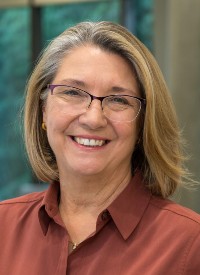
Jane Buckner, MD
President, Benaroya Research Institute
Website: https://www.benaroyaresearch.org/about-bri/faculty-scientific-staff/jane-buckner
Social media: https://www.linkedin.com/in/jane-buckner-md-9336bab2/
Twitter (X): @BRIseattle
Expertise: Dr. Buckner is known for her research in translational immunology, combining genetics, immunology and clinical medicine to advance the understanding of the causes of autoimmune diseases. At Benaroya Research Institute, Dr. Buckner was instrumental in developing the translational immunology research program and establishing the BRI biorepository, which currently includes more than 350,000 samples from 14,000 participants. She has made significant contributions to our understanding of how human T cells are dysregulated in type 1 diabetes and rheumatoid arthritis and has been a pioneer in the development of antigen-specific regulatory T cell therapies.
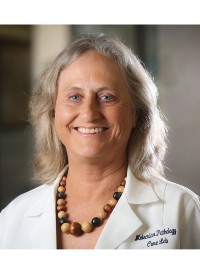
Martha Campbell-Thompson, DVM, PhD
Professor
University of Florida
Website: https://pathology.ufl.edu/profile/campbell-thompson-martha/
Social media: Twitter (X): @thompmc
Expertise: Martha Campbell-Thompson, D.V.M., Ph.D., serves as the Molecular Pathology Core Director at the University of Florida, where she earned doctorates in veterinary medicine and physiological sciences. A board-certified large animal veterinary surgeon, Dr. Campbell-Thompson transitioned into basic science research in the College of Medicine at the University of Florida after receiving her Ph.D. on studies of gastric acid secretion in conscious horses and gastric ulcer disease in young horses. She has over 20 years of experience in studies of type 1 diabetes including the histopathology of the human pancreas in conditions of health and disease.

Barbara Corkey, PhD
Professor Emeritus
Boston University
Website: https://www.bumc.bu.edu/camed/profile/barbara-corkey/
Social media: Twitter (X): @bcorkey
Expertise: Dr. Corkey’s work focuses on the metabolic regulation of signal transduction and energy metabolism in fat cells, β-cells, and human fibroblasts. She and her colleagues have been studying fuel-stimulated insulin secretion by the pancreatic β-cell; fuel partitioning in rat adipocytes; cytokine signaling; and Ca2+ transients in human fibroblasts from patients with inborn errors of fatty acid oxidation and Type 1 diabetes.

Silvia Corvera, MD
Professor
UMass Chan School of Medicine
Website:https://www.umassmed.edu/dcoe/diabetes-research/basic-research-labs/silvia-corvera-adipocytes/
Expertise: Dr. Corvera’s work is focused on understanding the basic physiopathology of Type 2 diabetes, specifically the role of adipose tissue physiology in diabetes pathogenesis.

Linda DiMeglio, MD
Edwin Letzter Professor of Pediatrics
Indiana University School of Medicine
Website: https://medicine.iu.edu/faculty/1595/dimeglio-linda
Social media: Twitter (X): @doctordimeglio
Expertise: Dr. DiMeglio’s work focuses on Type 1 diabetes prevention and treatments, including new technologies, and also in the area of therapies for metabolic bone disease.

Carmella Evans-Molina, MD, PhD
Eli Lilly Foundation Professor of Pediatric Diabetes
Director, IU Center for Diabetes and Metabolic Diseases (CDMD)
Indiana University School of Medicine and the Roudebush VA Medical Center
Website: https://medicine.iu.edu/faculty/5100/evans-molina-carmella
Social media: Twitter (X): @cevansmo
Expertise: Dr. Evans-Molina’s research program is focused on defining the molecular and inflammatory etiologies of β-cell dysfunction that contribute to diabetes pathophysiology. In basic science work, Dr. Evans-Molina studies how alterations in calcium signaling within the β cell secretory pathway are linked with impairments in insulin secretion, processing, and trafficking. Dr. Evans-Molina’s translational and clinical projects harness knowledge gained from studying stress within the β cell to develop biomarker strategies with the goal of informing T1D screening strategies and the identification of targets for disease-modifying therapies.
To listen to our interview of Dr. Evans-Molina:

Eva Feldman, MD, PhD
James W. Albers Distinguished University Professor of Neurology
Russel N. DeJong Professor of Neurology
Director, ALS Center of Excellence at Michigan Medicine
Director, NeuroNetwork for Emerging Therapies
University of Michigan
Website: https://medicine.umich.edu/dept/mneuronet/about/eva-l-feldman-md-phd
Social media: Twitter (X): @EvaFeldmanMDPhD
Expertise: Dr. Feldman is one of the world’s leading authorities on neurodegenerative disease and has made numerous contributions to biomedical research and clinical care in many critical areas. Her primary focus has been on amyotrophic lateral sclerosis (ALS), brain health, and the neurologic complications of diabetes and obesity. She also has conducted pioneering research on developing stem cell therapies to treat these diseases.

Susan K. Fried, PhD
Professor
Mount Sinai School of Medicine
Website: https://profiles.mountsinai.org/susan-fried
Social media: https://www.linkedin.com/in/susan-k-fried-96b77510/
Expertise: Dr. Fried has broad experience as a researcher and educator in the fields of obesity, nutrition and metabolism. Her lab conducts basic as well as collaborative translational research to understand depot- and sex- differences in human adipocyte metabolism, adipogenesis, and their hormonal regulation in health and disease.

Ruth Gimeno, PhD
Group Vice President, Diabetes, Obesity, and Cardiometabolic Research
Eli Lilly & Company
Website: Lilly.com
Social media: https://www.linkedin.com/in/ruth-gimeno-3756142/; Twitter (X): @EliLillyandCo
Expertise: Dr. Ruth Gimeno has dedicated her career to researching new therapies for diabetes, obesity and related disorders. After holding positions at Millennium Pharmaceuticals, Wyeth and Pfizer, Ruth joined Lilly in 2011 to lead Diabetes Discovery Research and expanded her responsibilities in 2016 to oversee Research and Early Clinical Development in Diabetes, Obesity and Cardiometabolic Disorders. Under Ruth’s leadership, Lilly scientists discovered and developed tirzepatide (launched as Mounjaro® for Type 2 Diabetes and Zepbound® for Obesity), and built a strong metabolic pipeline, including four molecules in Phase 3 clinical testing for diabetes (insulin efsitora), obesity & diabetes (retatrutide and orforglipron) and cardiovascular disease (lepodisiran). Ruth is passionate about mentoring the next generation of scientists and finding new ways to bring scientific innovation to patients.

Anna Gloyn, PhD
Professor of Pediatrics & Genetics
Stanford University
Website: https://profiles.stanford.edu/anna-gloyn
Social media: Twitter (X): @annagloyn
Expertise: Dr. Anna Gloyn is a geneticist and islet biologist. Her work is focused on translating genetic discoveries into biological and clinical insights into islet cell dysfunction in diabetes. She was the recipient of the European Association for the Study of Diabetes (EASD) Minkowski Prize in 2014 and the Outstanding Scientific Achievement Award from The American Diabetes Association (ADA) in 2022 for her research into causal mechanisms of diabetes pathogenesis.

Sherita Golden, MD
Hugh P. McCormick Family Professor of Endocrinology and Metabolism
Johns Hopkins University School of Medicine
Website: https://profiles.hopkinsmedicine.org/provider/Sherita+Hill+Golden/2704881
Social media: https://www.linkedin.com/in/sherita-golden-4388a9202/
Expertise: Dr. Golden’s epidemiological research interests focus on two areas: (1) endogenous sex hormones as risk factors for CVD, type 2 diabetes, and insulin resistance in post-menopausal women and (2) mental health complications of diabetes and the biological, hormonal, and behavioral factors that might explain these associations. Her health services research focuses on addressing diabetes health disparities and quality of care for inpatients with diabetes.
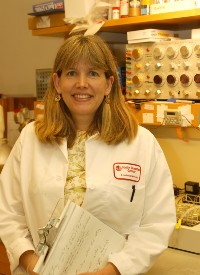
Laurie Goodyear, PhD
Professor of Medicine
Harvard Medical School
Senior Investigator
Joslin Diabetes Center
Website: https://www.joslin.org/find-an-expert/laurie-goodyear
Expertise: Dr. Goodyear’s lab has made groundbreaking discoveries on the molecular mechanisms by which physical exercise has beneficial effects on health. Her lab has done pioneering studies on skeletal muscle signaling mechanisms including work on AMPK and identification of numerous contraction-stimulated signaling networks, the beneficial effects of exercise on adipose tissue structure and function, and epigenetic mechanisms mediating the effects of maternal and paternal exercise to improve offspring metabolic health.

Maria Grant, MD
Professor/ Eivor and Alston Callahan Chair
University of Alabama Birmingham
Website: https://www.uab.edu/medicine/ophthalmology/faculty/grant-maria-m-d
Expertise: Dr. Grant’s laboratory is interested in understanding the functional process of hematopoietic stem cells, and is focused on understanding how to best utilize human embryonic stem cells for vascular repair.
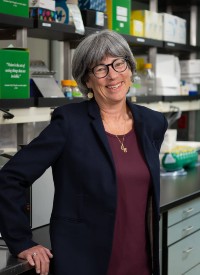
Carla Greenbaum, MD
Director, Center for Interventional Immunology
Benaroya Research Institute
Website: https://www.benaroyaresearch.org/about-bri/faculty-scientific-staff/carla-greenbaum
Social media: Twitter (X): @BRIseattle
Expertise: Dr. Greenbaum’s work is focused on altering the course of type 1 diabetes through understanding the causes of disease and testing interventions to modify immune-mediated beta cell dysfunction. She has led or participated in multiple clinical trials of disease-modifying therapies sponsored by academia and industry as well as proof of mechanism clinical research studies. Her expertise includes clinical trial design and implementation as well as discovery and evaluation of biomarkers for disease course and response to therapy.

Jenny Gunton, PhD
Professor / Director of the Centre for Diabetes, Obesity and Endocrinology Research
The Westmead Institute for Medical Research, The University of Sydney
Website: https://www.sydney.edu.au/medicine-health/about/our-people/academic-staff/jenny-gunton.html
Social media: Twitter (X): https://twitter.com/CDOE_Research
Expertise: Dr. Gunton is interested in the roles of micronutrients and transcription factors in disease. Her lab particularly focuses on Hypoxia Inducible Factor (HIF) and vitamin D biology, including in various diseases including beta-cell and islet biology, diabetes, acute and chronic liver disease, muscle weakness, and obesity.

Alyssa Hasty, PhD
Vice Provost and Senior Associate Dean for Faculty Affairs and Career Development
University of Texas Southwestern
Expertise: Dr. Hasty’s research career at Vanderbilt University spanned over 20 years where her group focused on immune mediated mechanisms of obesity-accelerated disease. Specifically, her group identified iron-handing macrophages as being critical for adipose tissue iron homeostasis. Additionally, they showed that memory formation in the adaptive and innate arms of the immune system contributes to impaired glucose tolerance in the context of weight cycling. Dr. Hasty is transitioning to a leadership position at UTSW in the summer of 2024.
To listen to our interview of Dr. Hasty:

Willa Hsueh, MD
Professor of Medicine
Director Diabetes and Metabolism Research Center
Wexner Medical Center, The Ohio State University
Website: https://medicine.osu.edu/find-faculty/clinical/internal-medicine/willa-hsueh-md
Expertise: Dr. Hsueh’s research has strong translational efforts in immunometabolism as it relates to adipose tissue changes with high fat diet and effects on inflammatory driven complications such as atherosclerosis, fatty liver disease and cardiac and renal function.

Holly Ingraham, PhD
Professor of Cellular and Molecular Pharmacology
University of California San Francisco
Website: https://profiles.ucsf.edu/holly.ingraham
Social media: Twitter (X): @hollyingrahamSF
Expertise: Dr. Ingraham’s research focuses on the basic science of “Hormones and Nerves in Female Physiology” aimed at improving women’s health.

Barbara Kahn, MD
George R. Minot Professor of Medicine, Harvard Medical School
Vice-Chair for Research Strategy, Department of Medicine;
Former Chief, Division of Endocrinology, Diabetes and Metabolism, Beth Israel Deaconess Medical Center;
Institute Member, Broad Institute of MIT and Harvard
Harvard Medical School and Beth Israel Deaconess Medical Center
Website: https://barbarakahnlab.com/
Expertise: Dr. Kahn’s pioneering research established a critical role for the GLUT4 glucose transporter in adipocytes in regulating systemic insulin sensitivity and Type 2 diabetes risk. Her lab discovered how glucose transporters are regulated in humans in altered metabolic states such as obesity and diabetes; defined unique molecules involved in the crosstalk between adipose tissue and other tissues involved in whole body insulin sensitivity and metabolic health; and discovered a novel class of lipids that correlate highly with insulin sensitivity in humans, and have anti-diabetic and anti-inflammatory effects. Her work may lead to new approaches to prevent or treat both Type 1 and Type 2 diabetes.

Francine R. Kaufman, MD
Distinguished Professor Emeritus
Children’s Hospital Los Angeles/Senseonics
Website:https://www.chla.org/profile/francine-kaufman-md
Expertise: Dr. Francine Ratner Kaufman is an American endocrinologist, professor, author, researcher, consultant, and corporate officer in the medical field of diabetes mellitus. She is the author of Diabesity: The Obesity-Diabetes Epidemic That Threatens America, and chief medical officer for Senseonics, Inc.

Lotte Bjerre Knudsen, DMSc
Chief Scientific Advisor
Novo Nordisk
LinkedIn:https://www.linkedin.com/in/lotte-bjerre-knudsen-7ba52915/?originalSubdomain=dk
Expertise: Dr. Knudsen is Chief Scientific Advisor in Research & Early Development, Novo Nordisk. She has been responsible for several inventions and publications in the GLP-1 area. Her research includes GLP-1 receptor agonist drug inventions, mechanisms for treatment of type 2 diabetes, brain pathways involved in homeostatic as well as hedonic appetite regulation, cardiovascular protection, kidney protection, and her latest research focuses on application within Alzheimer’s Disease.
To listen to our interview of Dr. Knudsen:

Susanne la Fleur, PhD
Professor
Amsterdam University Medical Center, University of Amsterdam
Website: https://www.amsterdamumc.org/en/research/researchers/susanne-la-fleur.htm; https://nin.nl/research-groups/la-fleur/
Social media: https://www.linkedin.com/in/susanne-la-fleur-6a54125/
Twitter: @lafleur_susanne
Expertise: Dr. La Fleur’s research aims to unravel the mechanistic link between diet composition and the development of obesity and diabetes as a first step towards a better understanding of the pathogenesis of Diabetes Type 2, focussing on the role of the brain. We study both the classical hypothalamic pathways but also cortico-limbic brain areas and their role in feeding behavior and glucose metabolism.

Susanne Mandrup, PhD
Professor, Center Director
University of Southern Denmark
Website: www.sdu.dk/mandrupgroup
Social media: https://www.linkedin.com/in/susanne-mandrup-420b211/
Twitter (X): @susmandrup
Expertise: Dr. Susanne Mandrup is Director of the Center of Excellence in Functional Genomics and Tissue Plasticity (https://www.sdu.dk/en/atlas) and the Center of Adipocyte Signaling (www.sdu.dk/adiposign) and heads the Functional Genomics and Metabolism Research Unit (www.sdu.dk/bmb/functionalgenomics). Her group focuses on understanding the transcriptional networks regulating differentiation and function of adipocytes as well as the cellular plasticity of adipose tissue and the endocrine pancreas in obesity.

Chantal Mathieu, MD, PhD
Professor
University Hospitals UZLeuven, KULeuven
Website: https://www.kuleuven.be/wieiswie/en/person/00009139
Social media: Twitter: @professorcm
Expertise: Dr. Chantal’s clinical areas of interest include the organization of diabetes care and disease modifying therapies in diabetes. She is involved in several clinical trials in type 1 and type 2 diabetes. Her research is focused on the prevention of T1D, effects of vitamin D on the immune system and diabetes, and functioning of the insulin-producing beta cell. She has lead and is leading several consortia and networks aiming at screening, preventing and curing T1D.

Juanita Merchant, MD, PhD
Chief of Gastroenterology and Hepatology
Regents Professor of Medicine
Associate Director for Basic Science, UACC
Interim Director UA Comprehensive Cancer Center
University of Arizona
Website: https://deptmedicine.arizona.edu/profile/juanita-l-merchant-md-phd-0
Expertise: Dr. Juanita L. Merchant is an American gastroenterologist and physiology researcher who has contributed to understanding of gastric response to chronic inflammation.

Antoinette Moran, MD
Vice Chair of Faculty Development, Department of Pediatrics
University of Minnesota
Website: https://med.umn.edu/bio/antoinette-moran
Expertise: Dr. Moran’s research in cystic fibrosis-related diabetes resulted in her being named the first annual recipient of the Cystic Fibrosis Foundation’s Richard C. Talamo Distinguished Clinical Achievement Award, for “research contributions that have had significant influence on the course of the disease.” She is a leader in the field of clinical trials to prevent and cure type 1 diabetes. She has done diabetes work in Africa since 2007, and has an R01 grant to improve T1D metabolic control in youth living in Uganda.

Deborah M. Muoio, Ph.D.
George Barth Geller Distinguished Professor of Cardiovascular Disease
Departments of Medicine and Pharmacology & Cancer Biology
Associate Director
Sarah W. Stedman Nutrition and Metabolism Center
Duke Molecular Physiology Institute
Website: https://medicine.duke.edu/profile/deborah-marie-muoio
Social media: Twitter: @DebMuoio
Expertise: Dr. Muoio’s laboratory investigates mechanisms of metabolic regulation, with emphasis on molecular events that link lifestyle factors such as over nutrition and physical inactivity to metabolic disorders, including obesity, diabetes, and heart failure.

Kristen Nadeau, MD, MS
Professor of Pediatric Endocrinology, Vice Chair, Clinical Translational Research, Department of Pediatrics
University of Colorado-Anschutz Medical Campus
Website: https://profiles.ucdenver.edu/display/224738
Expertise: Dr. Nadeau’s research focuses on sex differences, such as implications of higher rates of type 2 diabetes in girls, lower rates of physical activity in girls, the impact of pubertal hormones on diabetes risk, high testosterone in girls with polycystic ovarian syndrome, higher rates of metabolic-associated steatotic liver disease in adolescent boys versus girls, higher rates of responsiveness of girls to TZD’s, and the impact of gender affirming hormone therapy in adolescents on diabetes and cardiovascular risk.
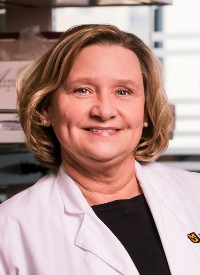
Elizabeth Parks, PhD
Professor
University of Missouri
Website: https://cafnr.missouri.edu/directory/elizabeth-parks/
Social media: X, @ElizabethxParks
Expertise: Dr. Parks is a professor of nutrition who studies blood fats in obesity, diabetes, metabolic dysfunction-associated steatotic liver disease, liver inflammation in the fasting and fed states; Non-steady state kinetics in metabolism, effects of food intake and sensory effects on absorption of lipids, and the effects of diet on the development of obesity-related disorders.

Judith Regensteiner, PhD
Distinguished Professor of Medicine
University of Colorado Denver-Anschutz Medical Campus
Website: https://profiles.ucdenver.edu/display/226454
Expertise: Dr. Judith Regensteiner is dedicated to growing the field of women’s health research and sex differences research to promote optimal health care for all. Dr. Regensteiner’s research expertise is in the cardiovascular effects of diabetes with a specific focus on women with type 2 diabetes since they appear to have more significant sequelae than men with diabetes. Her lab has been funded for over 30 years and her more than 180 publications have influenced the field.

Jane Reusch, MD
Professor
University of Colorado Anschutz Medical Campus
Website: https://profiles.ucdenver.edu/display/224411
Expertise: Dr. Reusch’s lab focuses on understanding the role of chronic metabolic, oxidative and inflammatory stress of diabetes decreases resilience and homeostasis, which contributes to decreased functional capacity and diabetic complications.

Maike Sander, MD
Scientific Director and Group Leader
Max Delbruck Center, Berlin
Website: https://www.mdc-berlin.de/sander
Expertise: The goal of Dr. Sander’s research is to understand the molecular mechanisms that underlie the formation and function of pancreatic insulin-producing beta cells, which are affected in diabetes. Her research leverages a human stem cell-based organoid model of pancreatic islets to identify causes of diabetes and develop innovative therapies.

Jean Schaffer, MD
Professor
Joslin Diabetes Center
Website: https://schafferlab.org
Expertise: Dr. Schaffer’s research focuses on metabolic regulation and complications of diabetes. Her work has elucidated the ways in which high levels of sugars and fats in the bloodstream damage tissues of many organs, and her laboratory has developed models for study of the connections between diabetes and heart disease. She has used bold strategies and innovative approaches to discover links between metabolic regulation, small nucleolar RNAs, and mRNA translation. These discoveries have potential for development of novel strategies for improving the health of persons affected by diabetes.

Elizabeth R. Seaquist, MD
Professor of Medicine
University of Minnesota
Website: https://med.umn.edu/bio/elizabeth-seaquist
Expertise: Dr. Seaquist is interested in hypoglycemia and the complications of diabetes. Her research focuses on the effect of diabetes on brain metabolism, structure, and function.

Hei Sook Sul, PhD
Professor
University of California, Berkeley
Website: https://vcresearch.berkeley.edu/faculty/hei-sook-sul
Expertise: Dr. Sook Sul’s expertise is focused on the molecular and cellular biology of adipose tissue development, brown fat formation and browning of white fat, factors critical for thermogenesis, soluble factors and their receptors that prevent precursor cell differentiation into adipocytes and expansion of adipose tissue. She is interested in the critical enzymes that regulate lipogenesis and lipolysis, transcriptional and epigenetic regulation of lipogenesis and lipolysis in response to insulin/feeding.

Jacqueline M Stephens, PhD
Professor
Louisiana State University/Pennington Biomedical Research Center
LinkedIn: https://www.linkedin.com/in/jackie-stephens-60328ba3/
Social media: Twitter (X), @jackie_science
Expertise: Dr. Stephens studies adipocytes because this cell type has several functions and if any one of these function are disrupted than Type 2 Diabetes can develop. To date, one of her notable observations is that STAT5 and its target genes regulate fat cell development, and these genes play a role in insulin action, lipid metabolism and the endocrine properties of fat cells.

Doris Stoffers, MD, PhD
Professor
Perelman School of Medicine, University of Pennsylvania
Website: https://www.med.upenn.edu/stofferslab/
Expertise: Dr. Stoffers leads a basic biomedical research group at the University of Pennsylvania that includes clinical and basic postdoctoral fellows, MD, MD-PhD and PhD graduate students, and undergraduates, all striving to understand the development, maintenance and regeneration of pancreatic islet beta cells that produce the hormone insulin so critically required for normal glucose homeostasis.
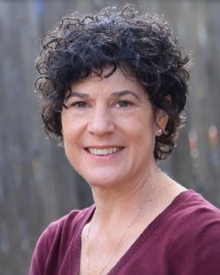
Lori Sussel, PhD
Professor
Research Director, Barbara Davis Center
University of Colorado Anschutz Medical Campus
Website: https://medschool.cuanschutz.edu/barbara-davis-center-for-diabetes/about/faculty/lori-sussel
Expertise: The main focus of Dr. Lori Sussel’s lab is to understand the complex transcriptional networks that regulate development, differentiation and function of the pancreas. Her work has advanced our understanding of the regulatory pathways that are essential in islet lineage specification, pancreas development, and maintenance of beta cell maturation.

Megan Sykes, MD
Michael J. Friedlander Professor of Medicine,
Professor of Microbiology & Immunology and Professor of Surgical Sciences,
Director, Columbia Center for Translational Immunology,
Director of Research, Transplant Initiative,
Director, Bone Marrow Transplantation Research, Division of Hematology/Oncology
Columbia University College of Physicians and Surgeons,
Columbia University
Website: http://www.cumc.columbia.edu/ccti
Social media: https://www.linkedin.com/showcase/columbia-center-for-translational-immunology/
Twitter (X): @ccti_NYC
Expertise: Dr. Sykes and her team have developed mixed hematopoietic chimerism as an approach to achieving organ and islet allograft tolerance and shown that this strategy reverses islet autoimmunity in animal models. They have pioneered methods of xenograft tolerance induction that are being extended to porcine islet transplantation. They have developed novel human immune system mouse models using bone marrow stem cells from patients with Type 1 Diabetes Mellitus, recapitulating features of the disease in patients and discovering genetically-predetermined pathways leading to this immune dysregulation.

Yu-Hua Tseng, PhD
Professor
Joslin Diabetes Center, Harvard Medical School
Website: https://www.joslin.org/find-an-expert/yu-hua-tseng
Social media: https://www.linkedin.com/in/yu-hua-tseng-644b68264/
Twitter (X): @tsengyuhua
Expertise: Dr. Yu-Hua Tseng is an internationally distinguished scientist at the forefront of research focused on brown fat biology, energy metabolism, gene expression, signal transduction, and mitochondrial biology, and how these relate to obesity and diabetes.

Eve Van Cauter, PhD
Frederick H. Rawson Professor (Emeritus) in Medicine
University of Chicago
Website: https://mmp.bsd.uchicago.edu/steering-committee/eve-van-cauter/
Expertise: Dr. Van Cauter’s group demonstrated that sleep loss, poor sleep quality and disorders of the circadian system are novel risk factors for obesity and diabetes. The group has identified hormonal mechanisms linking insufficient and/or mistimed sleep with the dysregulation of hunger and appetite. In recent years, their research focused on the impact of obstructive sleep apnea on the risk and severity of diabetes and on the metabolic implications of circadian misalignment associated with shift work and abnormal timing of food intake.

Ruth S. Weinstock, MD PhD
SUNY Distinguished Service Professor, Division Chief
SUNY Upstate Medical University
Website: https://www.upstate.edu/endo/faculty.php?empID=weinstor
Expertise: Dr. Weinstock’s clinical research focuses on the prevention and treatment of type 1 and type 2 diabetes mellitus and their complications, obesity, and on improvement in the delivery of diabetes care and reduction of disparities. She has co-authored >300 publications, and has been PI or Co-I on >130 NIH-sponsored, not-for-profit and industry sponsored diabetes clinical studies.

Bessie A. Young-Meilcarek, MD, MPH, FACP, FASN
Professor of Medicine, Nephrology
Section Head, VA Puget Sound Health Care System
Associate Chair for Diversity and Inclusion
Director, Justice, Equity, Diversity, and Inclusion Center for Transformative Research
VA Puget Sound Health Care System & University of Washington Medicine
Website: https://nephrology.uw.edu/people/faculty/young-b
Expertise: Dr. Young studies racial and ethnic differences in diabetes and CKD, diabetic neuropathy including access to care, quality of care, progression of care, progression/survival, and other outcomes.

Anette-Gabriele Ziegler, MD
Director of the Institute of Diabetes Research
Helmholtz Munich, German Research Center for Environmental Health
Website: https://www.helmholtz-munich.de/en/idf/pi/anette-gabriele-ziegler
Expertise: Jointly with Helmholtz Munich and TUM, Dr. Ziegler has built one of the most renowned Study Centers for Childhood Diabetes – Early Care and Prevention. She was Speaker of the German Competence Network Diabetes Mellitus, is Speaker of the Global Platform for the Prevention of Autoimmune Diabetes, and is one of the type 1 diabetes academy heads of the German Center for Diabetes Research DZD e.V. She is one of 7 international principal investigators of the NIH funded TEDDY Consortium, and is the German representative for the NIH funded TrialNet consortium.

Juleen Zierath, PhD
Professor
Karolinska Institute/University of Copenhagen
Websites: https://ki.se/en/people/juleen-zierath and https://cbmr.ku.dk/research/research-groups/zierath-group/
Social media: www.linkedin.com/in/juleen-r-zierath-b62926240
Twitter (X): @JuleenRZierath
Expertise: Dr. Zierath’s research focuses on investigating the interactions between intrinsic biorhythms and external perturbations such as exercise and nutrient provision to identify novel translational strategies for prevention and treatment of metabolic disease. Her research focuses on the cellular mechanisms that correspond to the development of insulin resistance in Type 2 diabetes and how exercise can improve energy metabolism.
Don't see your favorite trailblazer on the list?
Nominate them! Send their name, institution, email, and a few words as to why you feel they should be nominated to darleen.sandoval@cuanschutz.edu. We will update this list annually!
